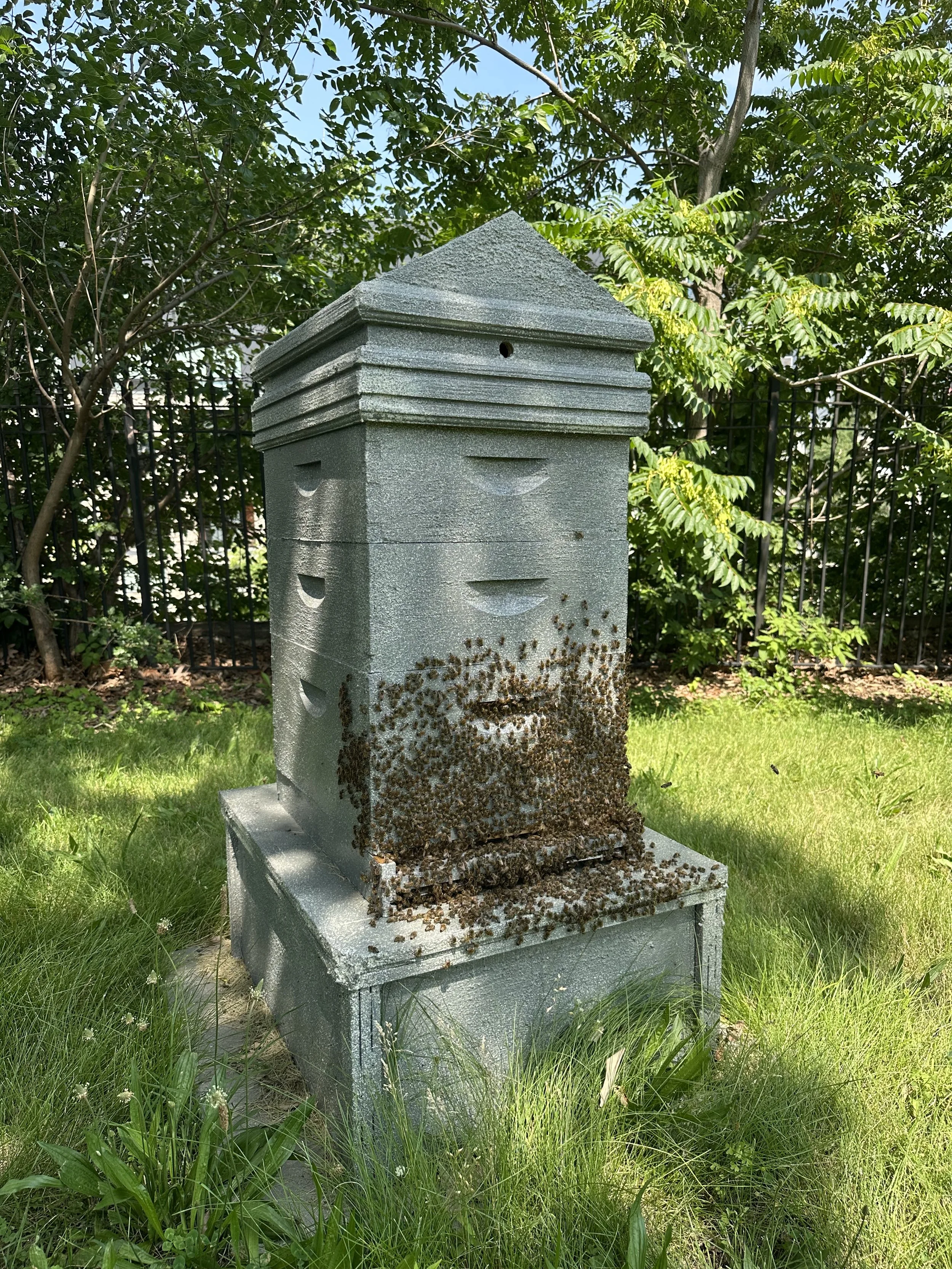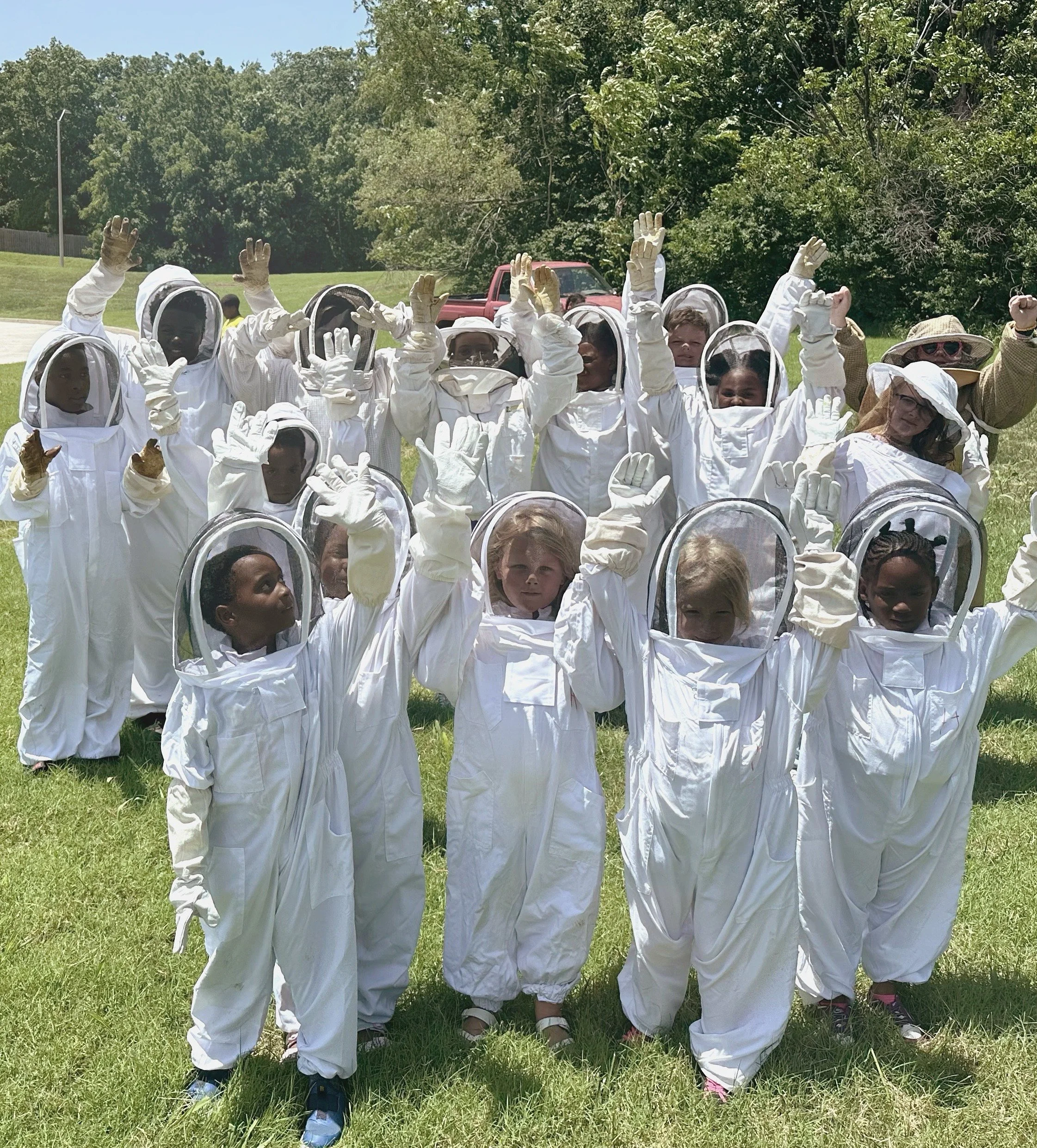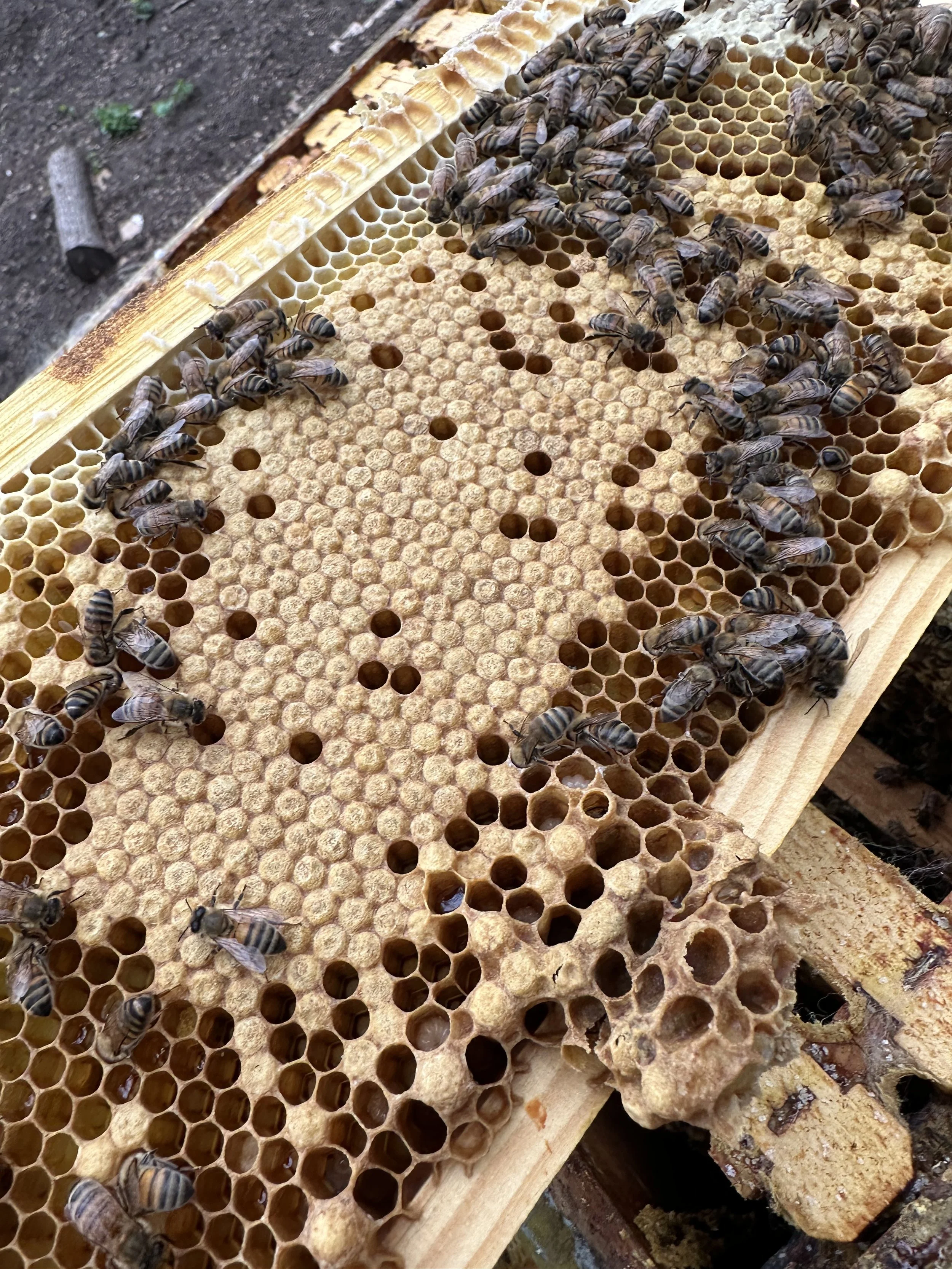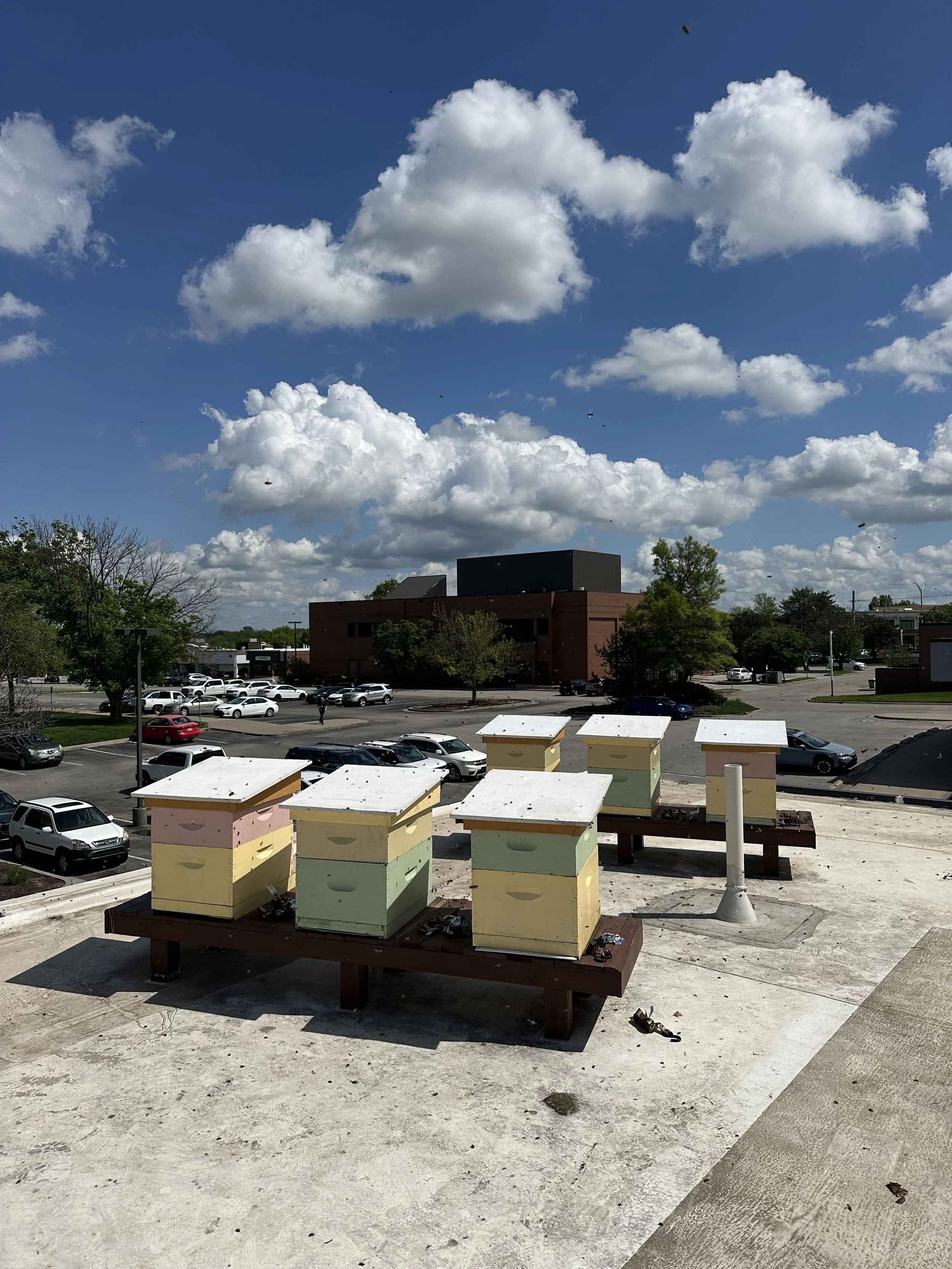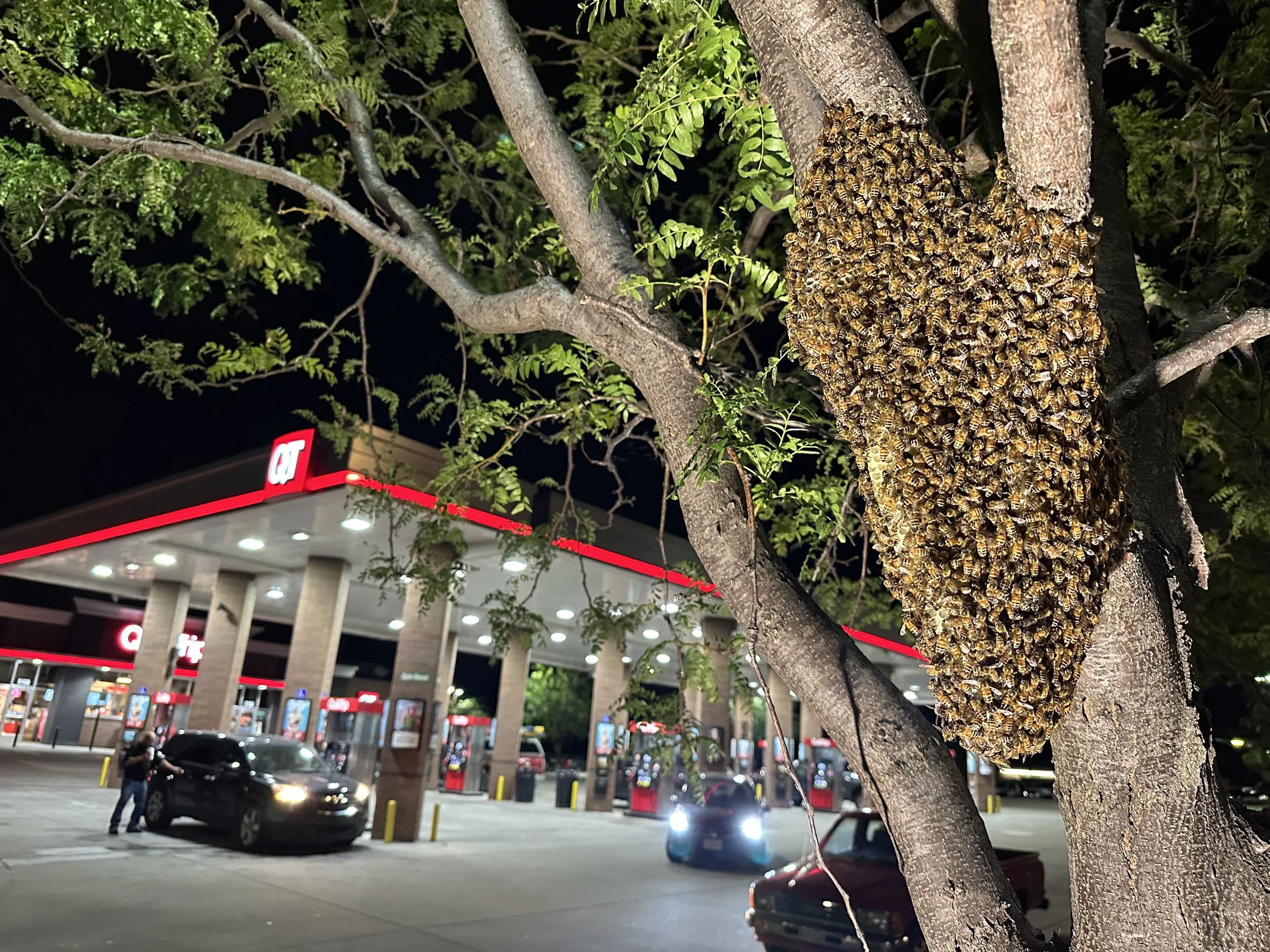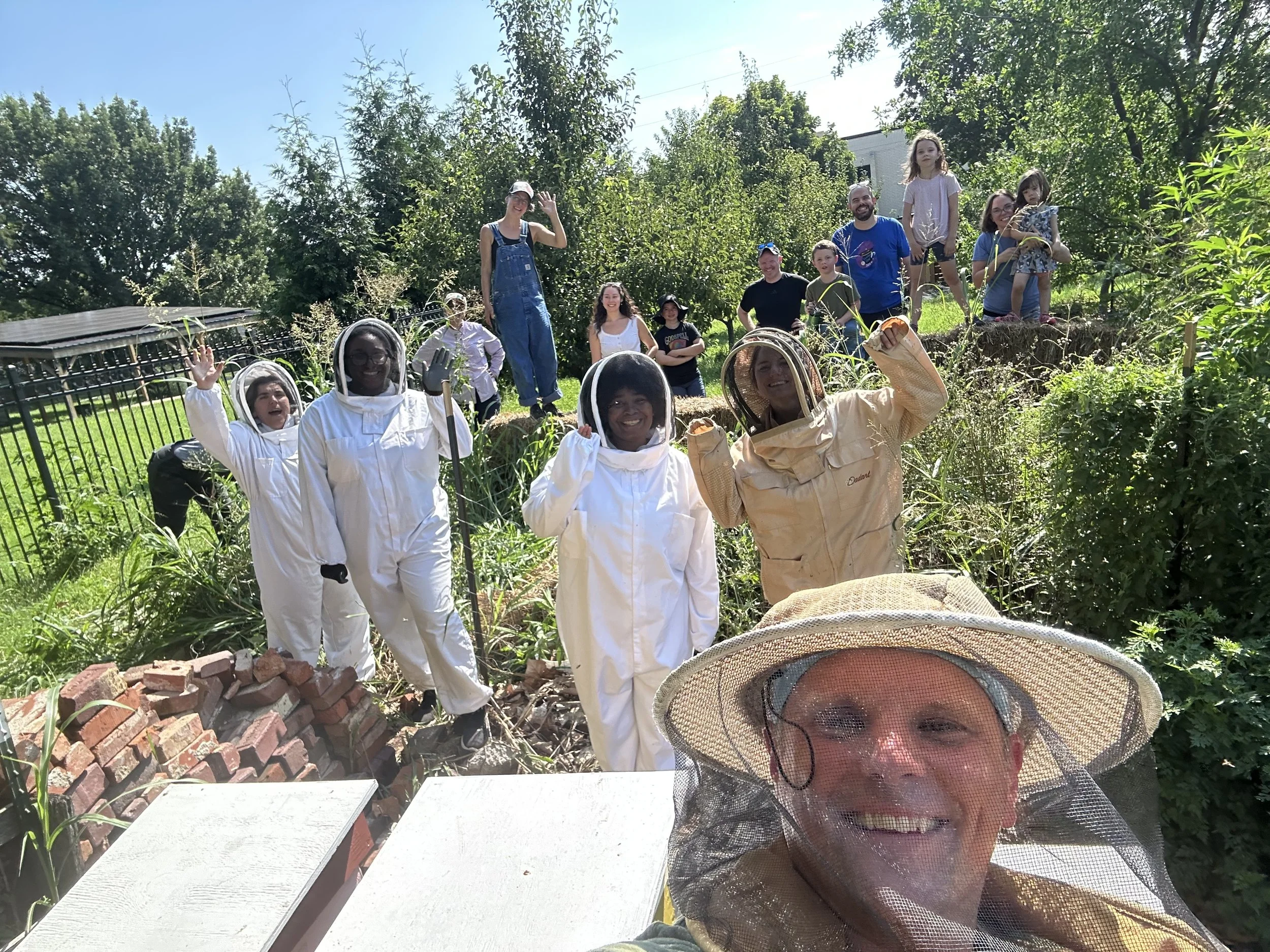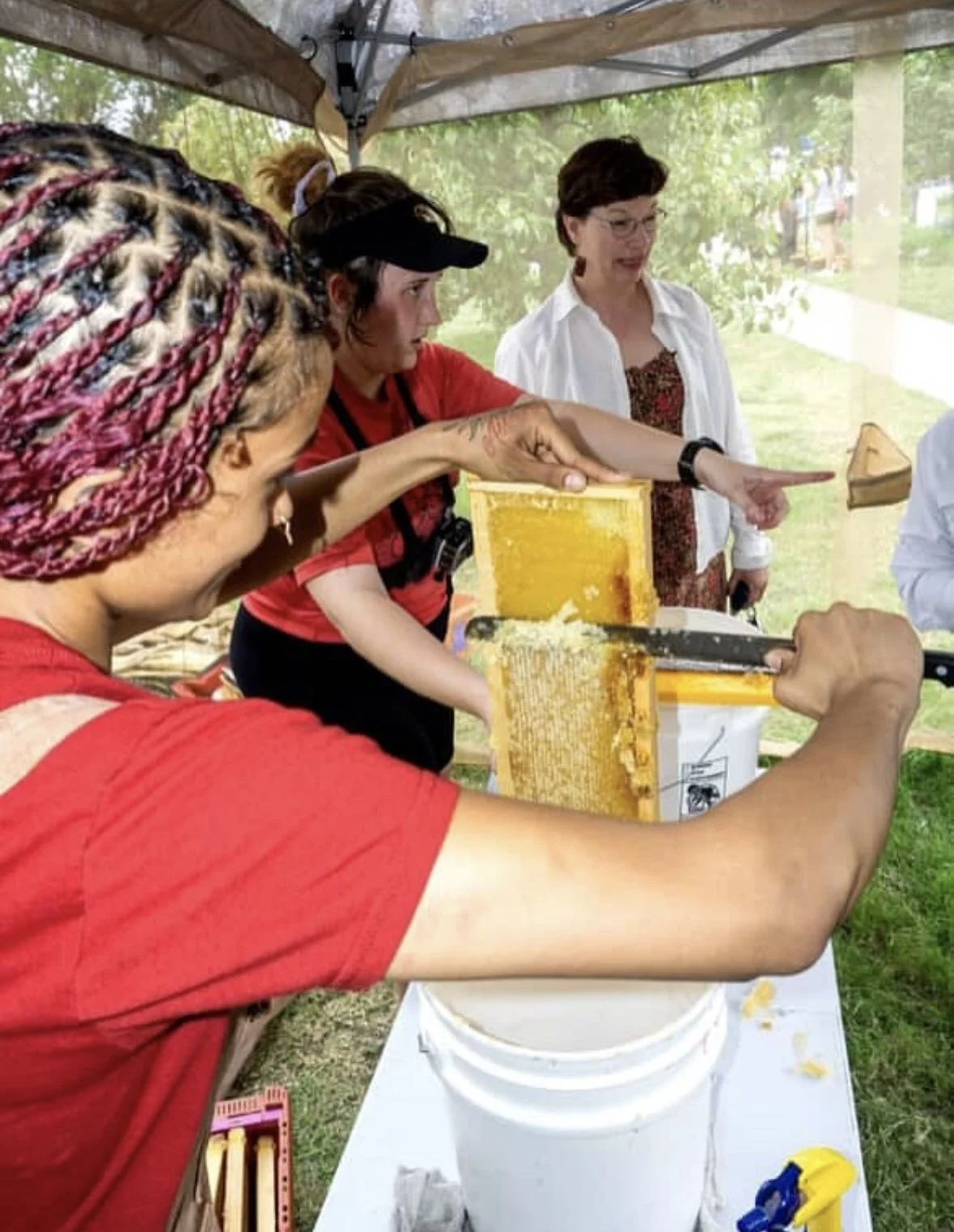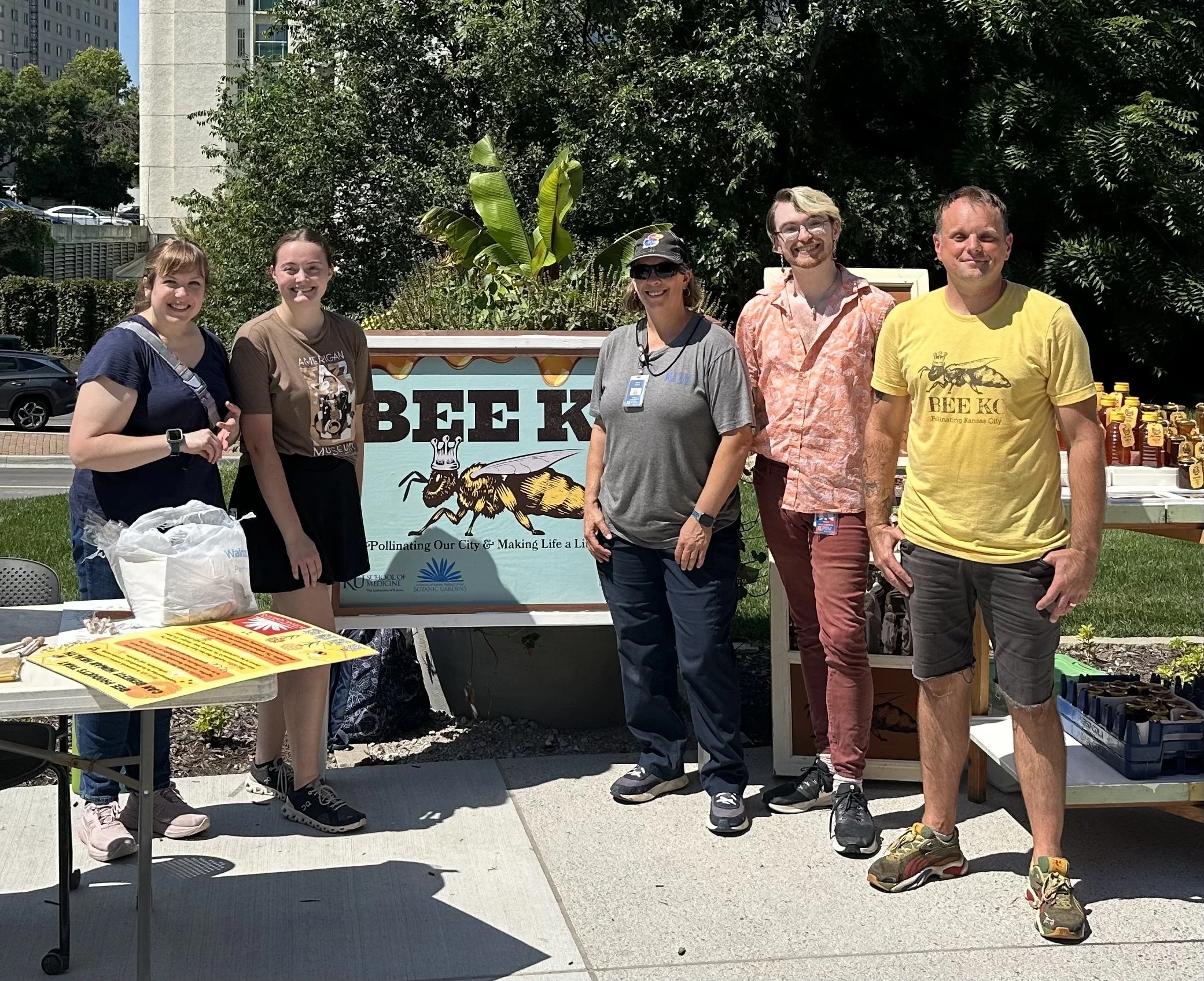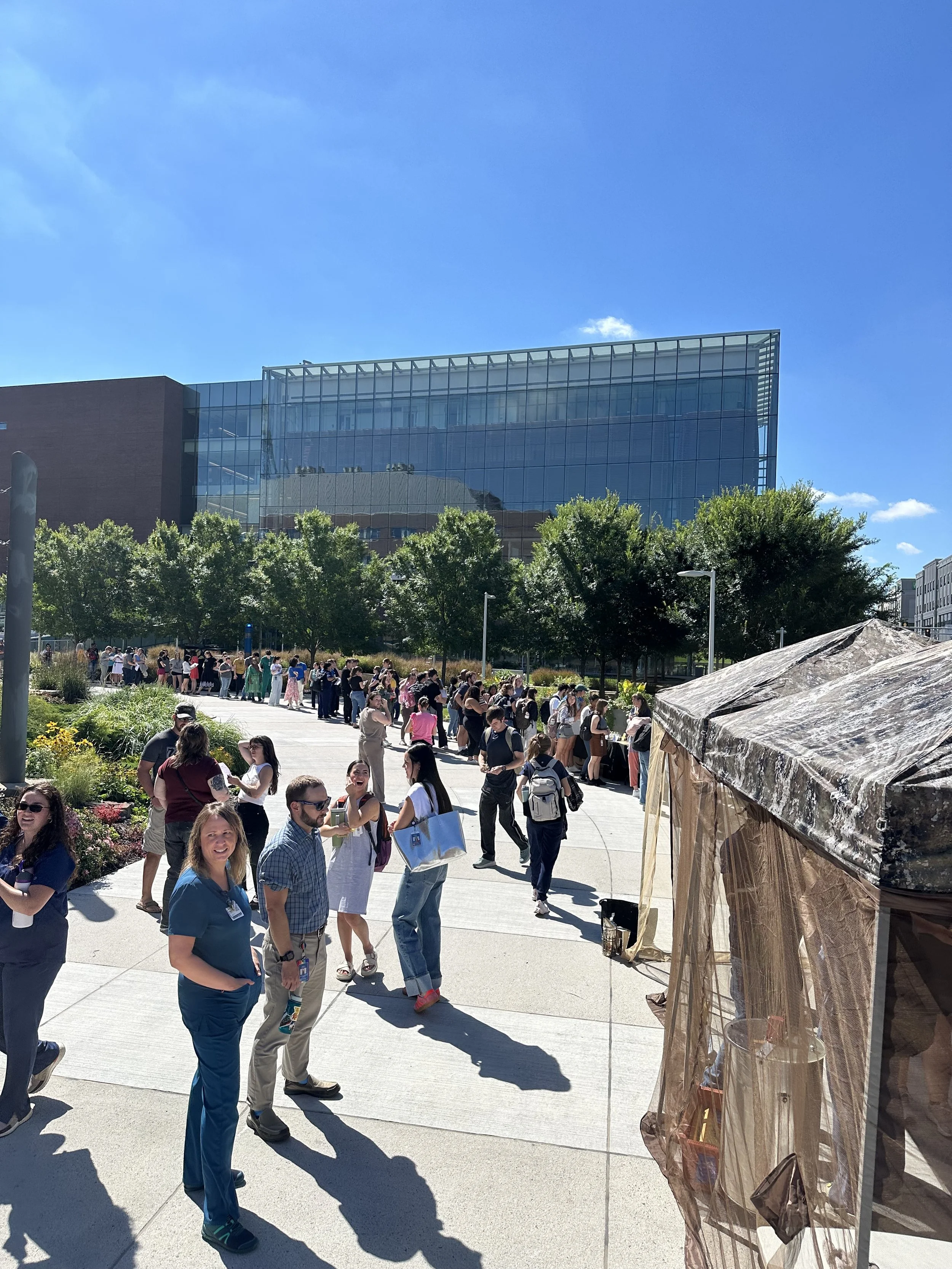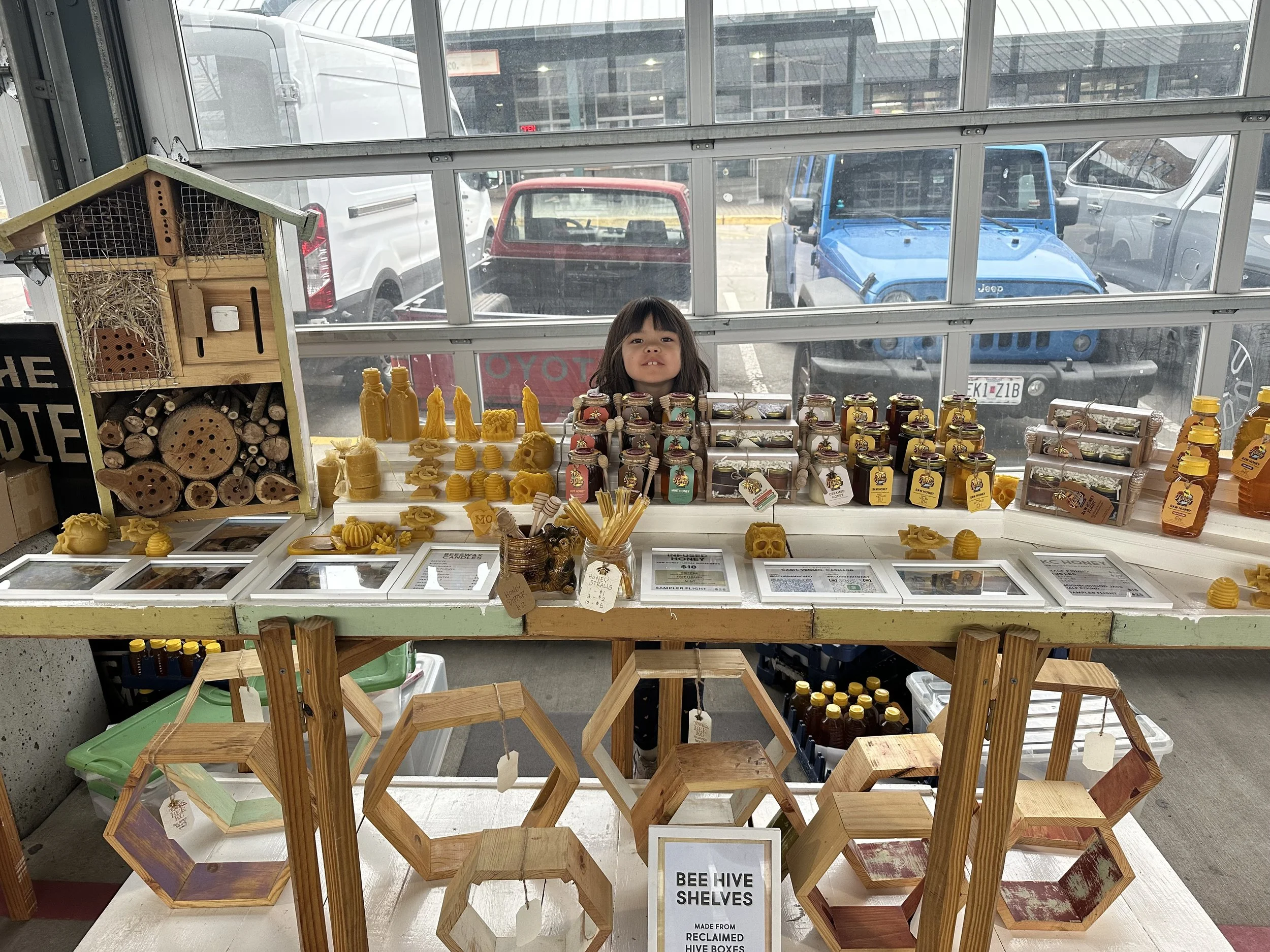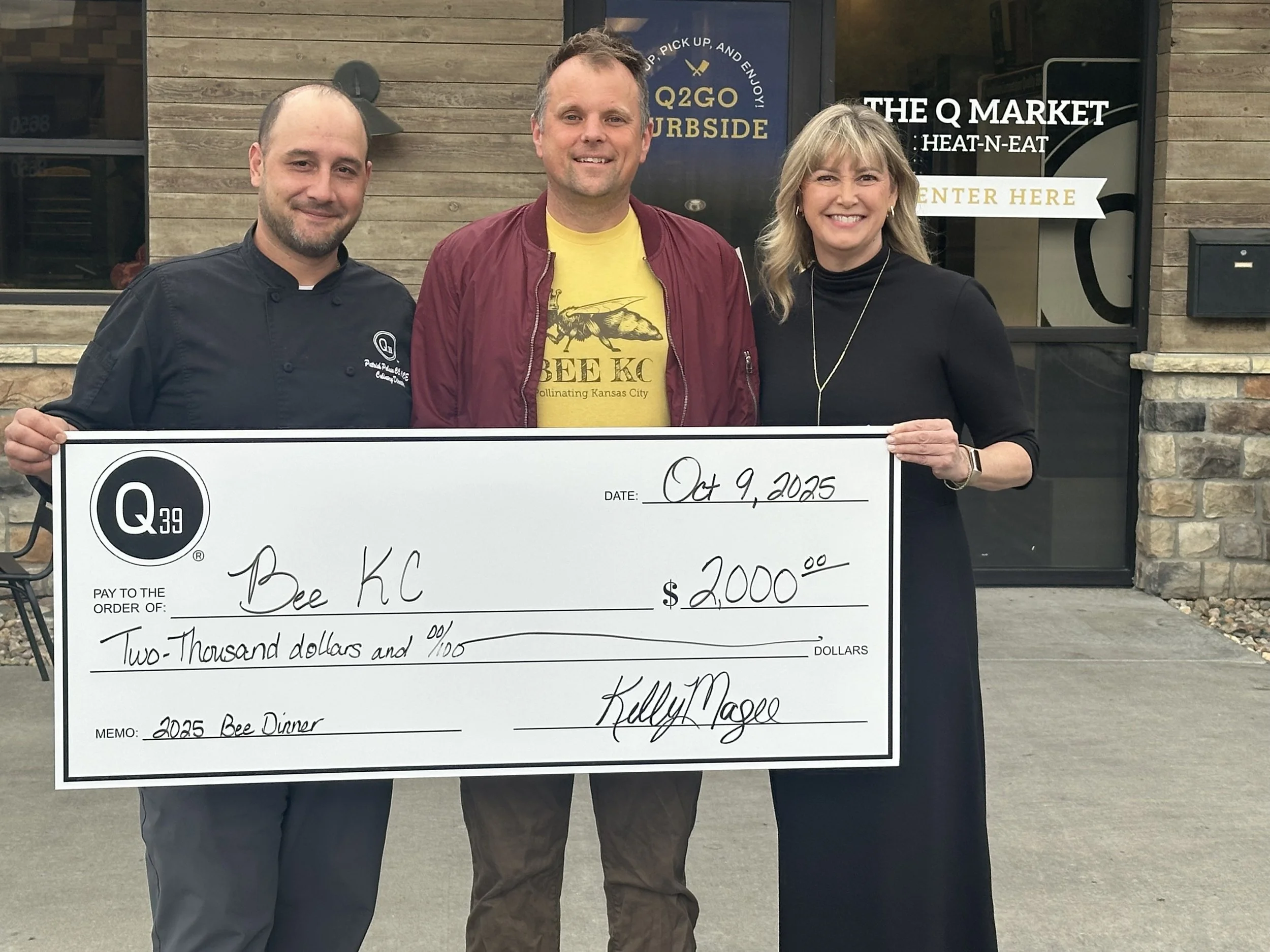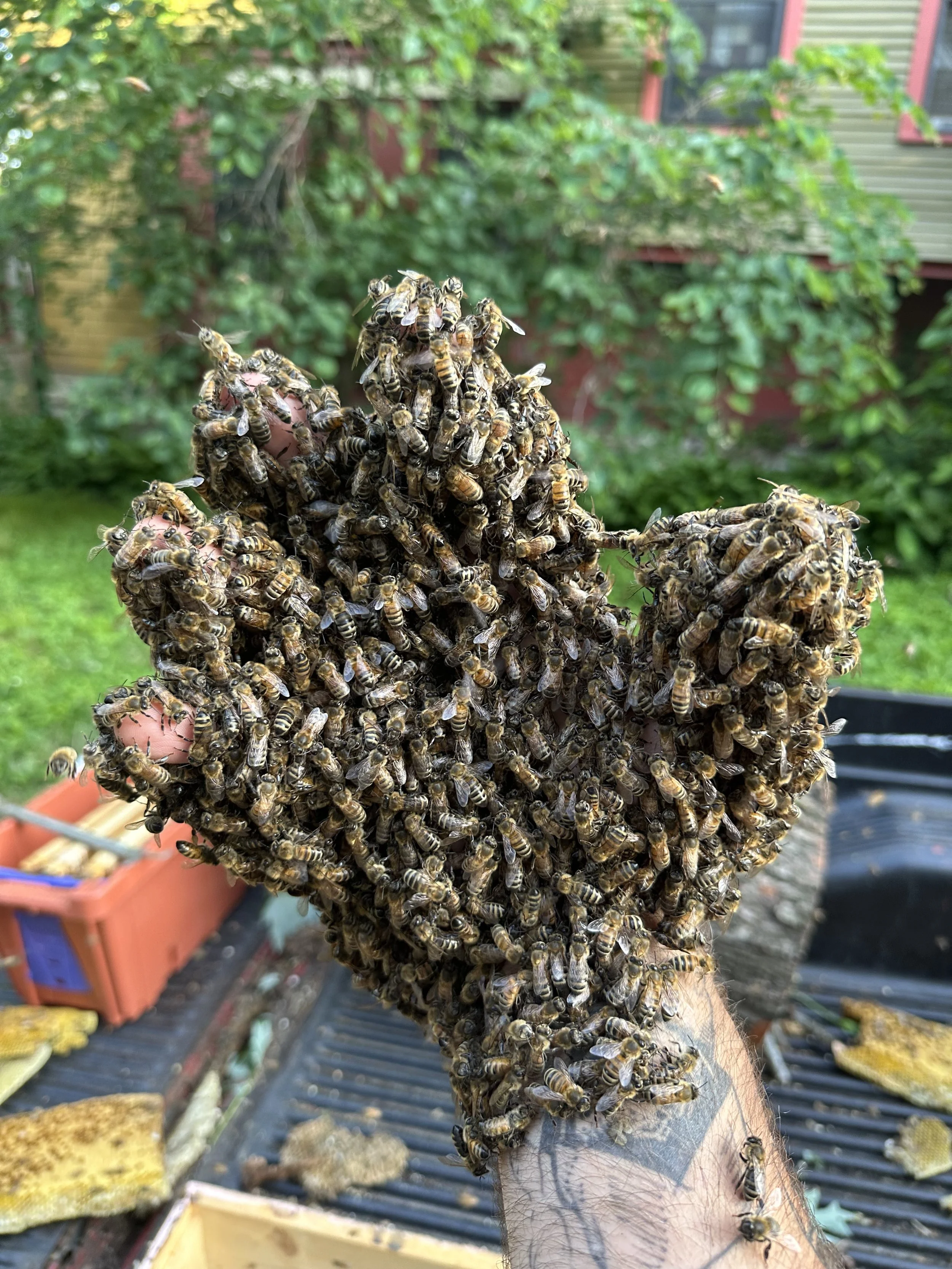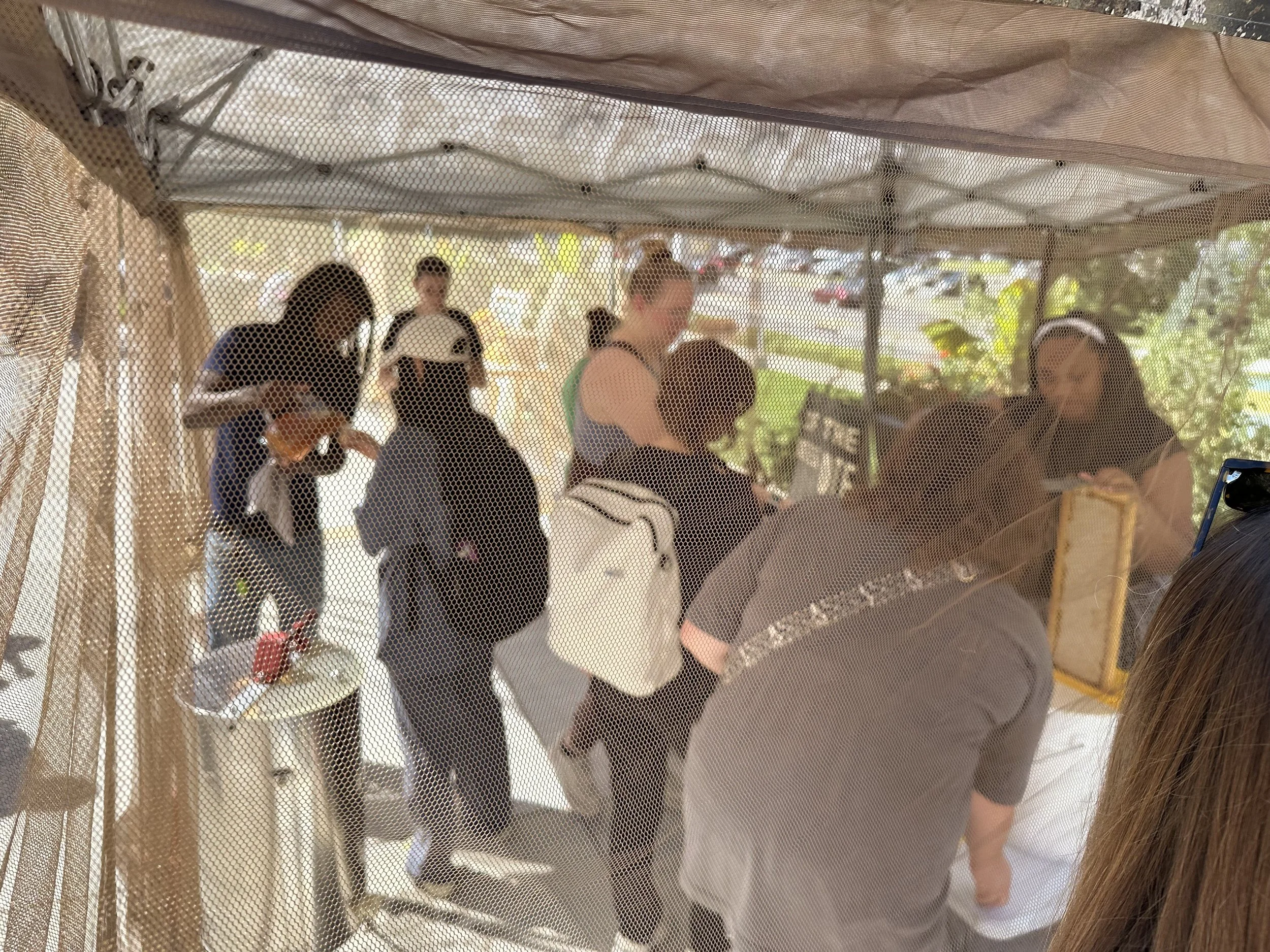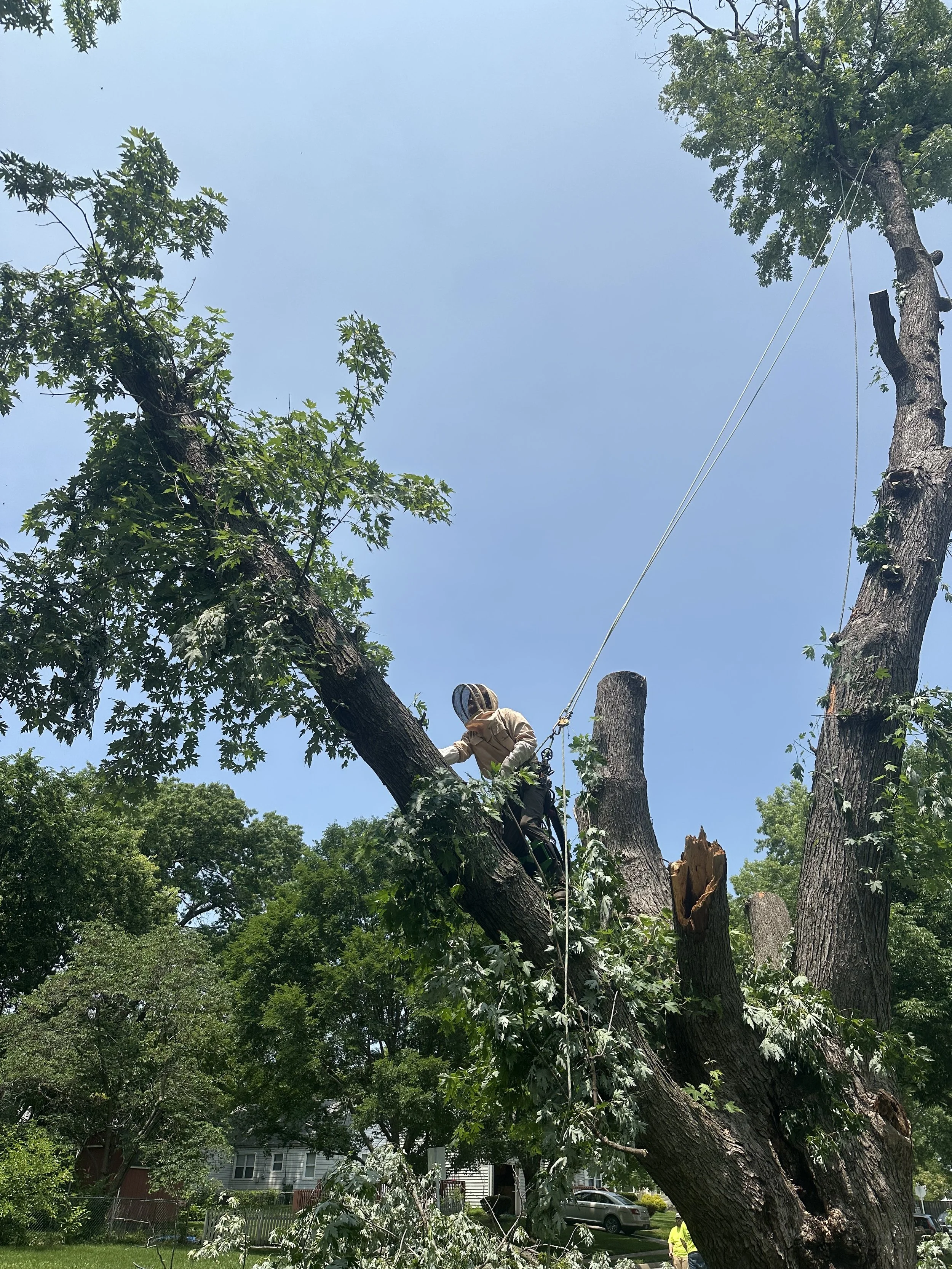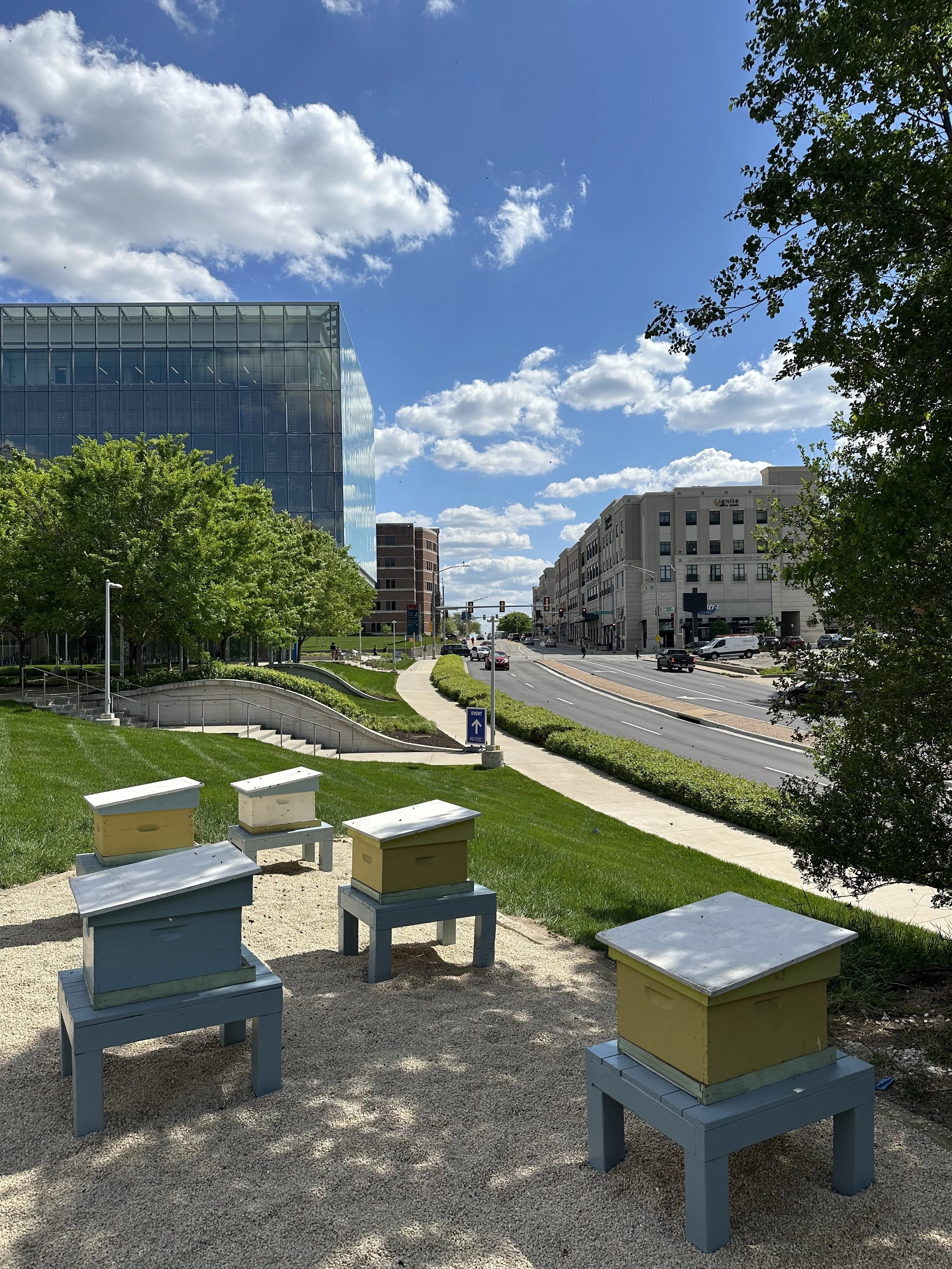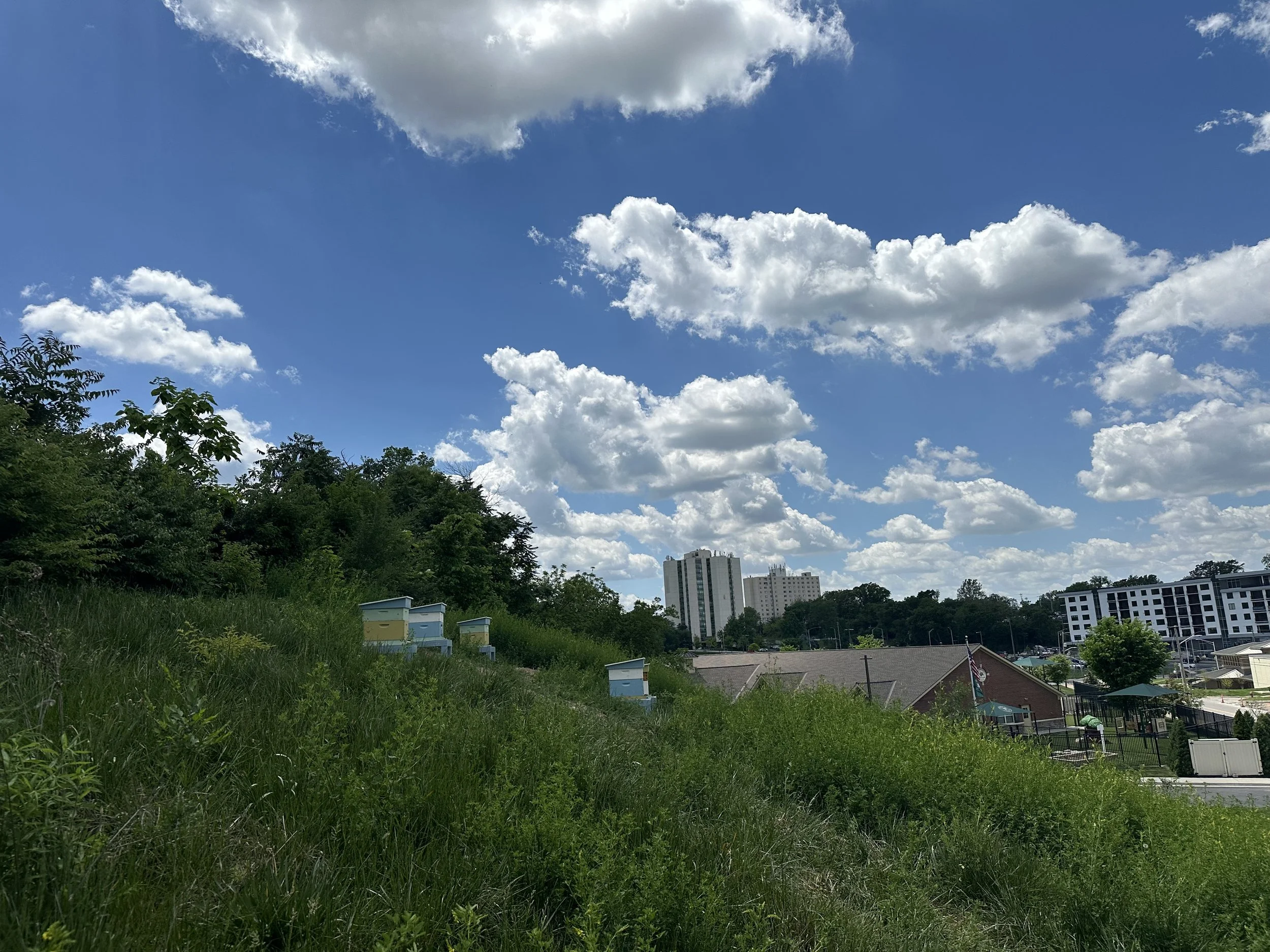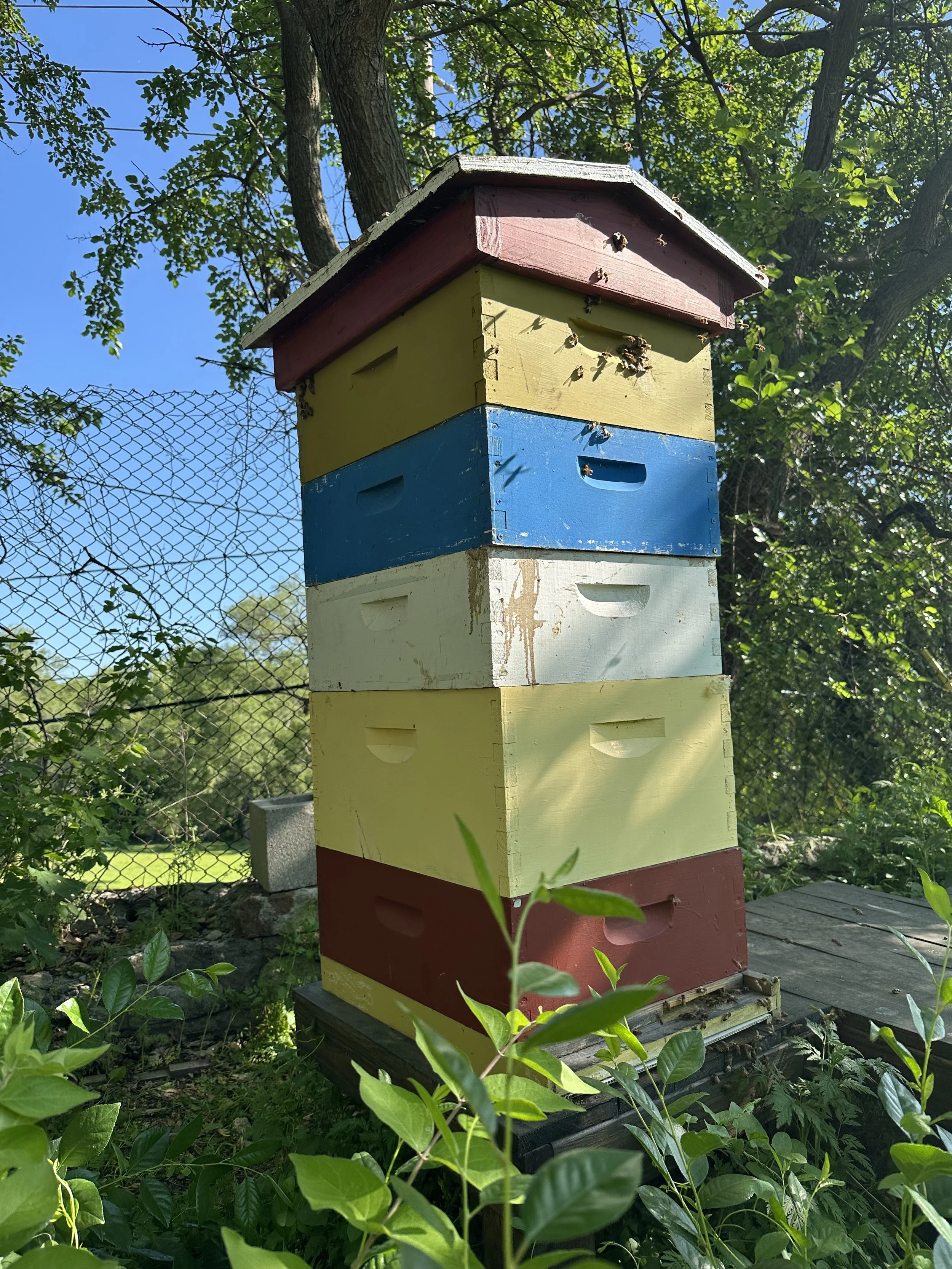
2025 YEAR IN REVIEW
What a year! 2025 brought together new people with old, new sites to visit, challenges (fresh and persistent), beautiful weather, and a sweet autumn. Every year begins in spring with exuberance and optimism as the plants bloom and the bees start flying and quickly moves into a grind as you add honey boxes, check for pests, and adjust for extreme heat and/or dry weather. In late summer and early autumn you hustle to harvest honey, and as it grows colder you mourn any lost colonies and prep for the cold.
We had a busy year so this is definitely not concise, if it gets tedious just enjoy the slides above and browse our instagram @BeeKCMO. If you couldn’t make it out to any events this year just keep an eye on the newsletter and social feeds, we’ve got a lot of fun coming in 2026!
ACTIVITIES
One of the most fun things we do is introducing people to bees at workshops, hive checks, honey harvests and more: everyone’s reactions are priceless, at any age! Some of the photos above show our group hive checks at the Pendleton Heights Orchard and at Holliday Montessori; each place hosts hives and puts on fun events every year. Most kids (and some adults) are nervous at first, but entranced once they get up close to the hardworking little ladies. Everyone has a million questions, and it’s really rewarding to share knowledge about these amazing creatures and their millennia-spanning partnership with humans. We’re truly humbled when faced with bees’ communication and daily practices, and their use of nectar, pollen, and other substances gives a view of nature that is at once micro- and macroscopic. Also, the concept of size goes away the longer you spend with them, eventually there doesn’t seem to be much difference between a cluster of bees and a herd of elephants! (Or a city of humans for that matter, although our own practices leave much to be desired.)
There are a few photos above of our bee rescues and rehoming, which mostly occur as bees swarm in the spring and early summer. We got to grab a cluster from a tree in front of a QuikTrip, cut a colony out of someone’s pantry ceiling, and fire up the chainsaw for quite a few tree removals. There have been a lot of dropped tree limbs (maybe because of the swings between dry and wet conditions over years) — if we’re lucky and the homeowners and arborists are unlucky there are bees in the tree! We’re starting to use more volunteers for removals to give an extra hand and get more footage, so hopefully we can make some great videos next year, message us if you’re interested in that. Removals are always done for free (most companies charge hundreds of dollars), and often folks are generous with donations for the service.
Sometimes we get in the news too, this time it was JuYeon Kim from KSHB 41 coming to my home apiary for a filmed interview & story about our work and the conditions of bees in the US. You know that frantic feeling of getting a messy house ready for guests? Try that but for a local news camera crew!
Beyond this we also have tons of fun at our…
HONEY HARVESTS
This year we harvested honey with hosts and communities at the Longfellow Community Garden, Q39, Holliday Montessori Elementary, Mimi’s Food Pantry, KU Med, Historic Union Cemetery, and a few others. At KU Med there was a massive crowd as you can see from one of the photos above! As usual, most of the honey went straight to our partners. Mimi’s Pantry put jars right onto their shelves, to be given free to patrons of the food bank. At Holliday jars were sold to support the school’s garden, Union Cemetery has jars of honey in their gift shop to support their work, Q39 used some of their honey in a special dinner and are still thinking of what to do with the rest, and our other partners used their honey in similar ways. The Pendleton Heights Orchard puts on some great bee events through the year, and uses the harvest as a way to raise funds for the garden and strengthening the community around it. It’s truly inspiring to see what these people do, and really motivates us to keep boosting the honey yield.
Any honey left over is sold at our regular weekend booth at the City Market, which provides our sole source of income. With luck (and work) we can grow things to provide new positions (fundraiser, outreach) and some sort of salary, but for now we’ve used any donations for new bees, as the next section details.
BEE HEALTH
Anyone following the news will know that 2024 was a terrible year for bees and their keepers all across the country. It was a record year for hive deaths — the combination of pests, disease, habitat loss, pesticides, extreme weather, declining genetics, and other factors have played havoc with our ecosystem in general, and insects are the canaries in our coal mine. We spent a lot replacing nearly all of our colonies after a heartbreaking fall, switched suppliers, and introduced new practices.
Those interested in specifics can do some reading on varroa mites, tracheal mites, small hive beetles, and the methods of protecting against them. Our interventions included using apiguard strips for the first time, giving the bees essential oils in crisco-sugar patties and syrup, powdered sugar dusting, and more, way too much detail to go into here!
We still lost more colonies in the fall than we’d like, but it’s an improvement and 2025 gave us a good sense of what to do in 2026. Donations in any amount currently go towards purchasing new bees; we’re looking at a big order for 2026 (though not as bad as last year), so any help goes to a good cause and is greatly appreciated.
PARTNERS
We’re super grateful for all of our partners, it’s a big plunge to introduce bee hives anywhere in a city and it’s fun to safely place hives, educate folks firsthand, and share the benefits widely. On top of producing honey, bees pollinate for miles around, so gardens and flowering plants in general all around the sites are positively impacted. Also, a honey bee colony can naturally lose up to 1,000 bees a day at peak season, that’s a lot of food for birds and other animals! (The queen can lay up to 2,000 eggs a day, so don’t fret over the numbers.)
A few philanthropic partners we especially love are Mimi’s Food Pantry and Drumm Farm. Mimi’s shelves and coolers are as as good as any grocery store and their patrons get amazing local honey to have alongside the other healthy offerings at the pantry. Drumm is a foster neighborhood where kids (including siblings who might otherwise be split) can live in full houses on a working farm, the honey goes to their weekly produce market that feeds the neighborhood and any attendees. And of course the bees pollinate the food farms at both locations!
The Pendleton Heights Orchard has been detailed a bit above, it’s beautiful to see an empty lot be transformed into a space for the entire community to enjoy the plantings and the literal fruits of their labor! Beautifying and rewilding empty spaces is an area we hope to grow into as an organization, and the PH Orchard provides a perfect blueprint.
One really fun new partner is the Historic Union Cemetery in midtown KCMO near the WWI Memorial, everyone needs to pay them a visit! It’s a beautiful public place with paths for exploring, jogging, or walking the dog, with graves dating back to the early 1800s. We even built the hives to resemble graves, which was a fun project. There’s an original caretakers cottage with some historical documents and a nice gift shop, where you can buy jars of honey and support the cemetery and their amazing gardening efforts.
And lastly a huge shoutout to partners who have really gone above and beyond with donations and support. Q39 held two amazing dinners with rooftop honey incorporated into each of the four courses, with proceeds going to us. KU Med held a weeks-long fundraiser for us, spearheaded by student Alexis Harper, which raised money and awareness. And the founder of Mimi’s Pantry Dennis Curtin and his wonderful wife Tamara Libbey have, with no exaggeration, saved Bee KC in some dire moments with their financial support. Big, big thanks to them, and to all the donors who give through the website; we hope to thank everyone directly with some honey and a firsthand experience with the bees, and honor the donations with our continued work to boost KC’s insect population, do good with our honey, and build and strengthen community wherever we are.
More to come in our regular newsletters and social posts; us and the bees won’t see many people while it’s cold, we hope everyone makes it out to a workshop, hive check, harvest, or other event in 2026!
David Friesen, Founder & Head Beekeeper



